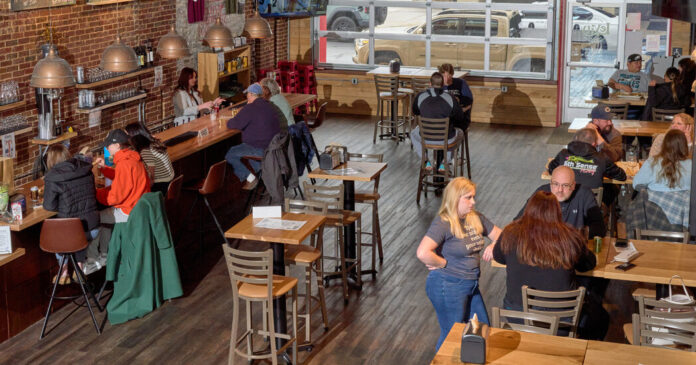About 64 percent of Pennsylvanians who responded to a Quinnipiac poll in early January described their financial situation as excellent or good; 24 percent described it as “not so good” and only 9 percent described it as bad. But in the same survey, only 33 percent of Pennsylvanians described the “state of the country’s economy” as excellent or good.
Loud frustration over more expensive gas and groceries, rising rents and landlord premium increases still enliven small talk among friends. Real estate prices have skyrocketed, a blessing for homeowners but a curse for those who want to join them. Child care and elder care costs, which were rising before the pandemic, are still rising. (And beyond needs like car insurance, there are hassles with the $4 bag of chips at the checkout or a $10 pint of beer that used to cost $7.)
The most popular measure of national consumer sentiment, tracked by the University of Michigan since 1978, has reached its highest level since July 2021, before inflation peaked. But sentiment has not yet fully recovered. It remains in limbo halfway between its all-time low in June 2022 – when inflation peaked at 9 percent – and its 21st century peak, around New Year's Eve 2019.
“It's hard to make yourself happy,” said Lindsay Danella, a native of Altoona, Pennsylvania.
At age 39, she recently left her job as a general manager at a hotel where she earned over $70,000. She said executives have struggled with staffing shortages during and after the pandemic by asking managers like her to do more of everything without offering more flexibility or pay.
Now, as a waitress at Levity Brewing in downtown Altoona, she makes the state's legal minimum wage for tipped workers, about $3, but says she's found ways to “love” it despite that low base. Business is good, so tips are plentiful on weekends. And the taproom, which opened in 2022 in a converted space with floor-to-ceiling windows, is part of a neighborhood that has been revitalized since 2021.
















